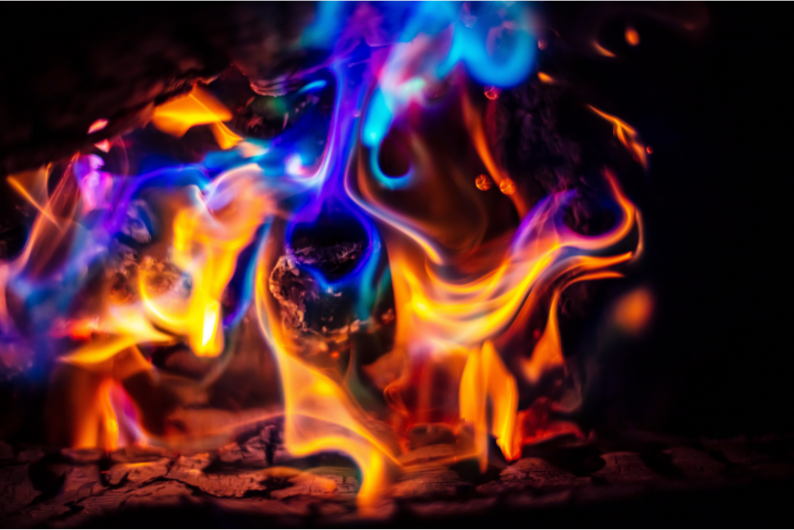Why Does Burning Diarrhea Happen, and How Can You Stop It?
Key Takeaways:
Diarrhea accelerates digestion, resulting in foods not being fully broken down. When this happens, stomach acids, digestive enzymes, and bile might still be present in the diarrhea.
These substances can damage intestinal and rectal tissue and lead to a burning sensation during or right after a bowel movement.
Certain foods, beverages, and medications may also cause burning to occur with diarrhea.
This article may contain links to products. When you purchase anything using a link on this page, we get a small commission at no additional cost to you.
Causes
Diarrhea is fairly common and has many potential causes.
Diet
Several types of food and beverages may irritate your digestive system and cause this uncomfortable condition.
These foods and drinks might cause burning diarrhea:
- Spicy foods: Foods containing compounds like capsaicin, found in chili peppers, can irritate digestive tissues and lead to diarrhea. Capsaicin may leave the body before breaking down, causing a burning sensation during bowel movements. (This is one reason Taco Bell causes diarrhea for some people.) Interestingly, the more you consume foods high in capsaicin, the higher your tolerance gets, and the less you may experience burning with your bowel movements.
- Caffeine: Coffee, tea, and energy drinks with a lot of caffeine can stimulate the digestive system and contribute to diarrhea.
- Artificial sweeteners: Sorbitol, xylitol, and other artificial sweeteners found in sugar-free gums, candies, and beverages can cause diarrhea in some people.
- Fructose: High-fructose fruits or foods with added fructose, such as soft drinks and fruit juices, can be challenging to digest for some people, leading to diarrhea. Apple juice has a laxative effect, and drinking highly processed apple juice with a lot of fructose can enhance this.
- High-fat foods: Foods high in fat, like fried foods and/or fast food, can be difficult to digest and contribute to diarrhea.
- Dairy products: Lactose intolerance can cause diarrhea in people who have difficulty digesting lactose, a sugar found in milk and dairy products. (Pro tip: Pick up some Lactaid and take it with your first bite to ease lactose intolerance symptoms.)
- Acidic foods: Citrus fruits, tomatoes, and other acidic foods may cause digestive discomfort and diarrhea.
Read Next: Green Poop: Concerning? Causes & When To Call the Doctor
Medication
Certain medications can cause burning diarrhea as a side effect. These may include:
- Antibiotics: These drugs can disrupt the balance of good and bad bacteria in the gut, leading to diarrhea.
- Nonsteroidal anti-inflammatory drugs (NSAIDs): Medications like ibuprofen and aspirin can irritate the stomach lining and cause diarrhea.
- Laxatives: Overuse of these medications can lead to loose or watery stools.
- Antacids: Some antacids containing magnesium can cause diarrhea.
- Metformin: This diabetes and PCOS medication can cause gastrointestinal side effects, including diarrhea.
- Chemotherapy drugs: These cancer treatments can affect the digestive system and lead to diarrhea.
- Proton pump inhibitors (PPIs): Medications like omeprazole, used for acid reflux, can sometimes cause diarrhea as a side effect.
Health conditions
Several health conditions (including digestive diseases and a few others) are known to cause diarrhea with a burning sensation:
- Irritable Bowel Syndrome (IBS): IBS can cause abdominal pain, bloating, and diarrhea, which may be accompanied by a burning sensation. This disease of the large intestine is one of the most common causes of diarrhea.
- Inflammatory Bowel Disease (IBD): Conditions like Crohn’s disease and ulcerative colitis, which involve chronic inflammation of the digestive tract, may lead to diarrhea and burning during bowel movements.
- Celiac disease: This severe food intolerance is actually an autoimmune disorder triggered by the consumption of gluten that can damage the small intestine.
- Gastroenteritis: Also known as the stomach flu, this viral or bacterial infection can cause diarrhea, vomiting, and stomach cramps. Possible causes of gastroenteritis include C. difficile infection and norovirus.
- Food poisoning: Consuming contaminated food can lead to GI infections, resulting in “fire poop.”
- Bile acid malabsorption: With bile acid malabsorption, the body fails to reabsorb bile acids properly. This can create burning, watery diarrhea.
- Chronic pancreatitis: Inflammation of the pancreas can impair fat digestion, resulting in fatty diarrhea and a burning sensation.
- Giardiasis: A parasitic infection caused by the Giardia lamblia organism can lead to diarrhea and other symptoms like stomach pain.
- Tumors: The growth of tumors (malignant or not) in the digestive system may cause diarrhea.
Why is my diarrhea yellow and burning? Yellow, burning diarrhea may point to conditions of the liver, pancreas, or gallbladder. Diseases affecting these organs affect your body’s bile production and may result in yellow stools.
Depending on the underlying cause, you may experience occasional or infrequent burning diarrhea or chronic diarrhea issues. If you have a condition like Crohn’s or bile acid malabsorption, work with a healthcare provider to manage your condition.
Anal skin irritation
Physical trauma, such as undigested portions of rough foods or wiping too hard after bowel movements, can cause irritation and small tears in the delicate tissues of the rectum.
Frequent tears in the rectal lining are referred to as anal fissures and may cause rectal bleeding. Exposed and/or bleeding skin is one reason your anus might burn when you have diarrhea. Anal fissures are frequently misdiagnosed as hemorrhoids.
Hemorrhoids
Swollen veins in the lower rectum or around the anus, known as hemorrhoids, sometimes get irritated and inflamed by episodes of diarrhea. This may cause a burning and painful sensation in the affected area.
Both internal and external hemorrhoids are frequently associated with burning during or right after defecation.
Drinking a lot of alcohol
Drinking alcohol can impair how your intestinal muscles contract and reduce the efficiency of how well your digestive system absorbs nutrients. Both of these factors contribute to diarrhea, especially in people who drink excessively.
Stress
Stress can negatively impact the digestive system, leading to diarrhea and, in some cases, a burning sensation during bowel movements. Being stressed can also make the appearance of your poop change to constipation.
Infections
Food poisoning, bacterial, and parasitic infections can cause diarrhea, leading to irritation from more frequent wiping and a burning sensation during bowel movements.
Most types of bacterial and parasitic infections require medical treatment. If you notice symptoms of burning diarrhea after 24-48 hours with an infection, talk to your primary care provider or gastroenterologist.
Surgery and medical treatments
Gastrointestinal surgeries or medical therapies, such as radiation therapy and chemotherapy, can cause diarrhea as a side effect. Diarrhea related to cancer therapy can last for up to 3 weeks after the end of treatment.
If you’re unsure about whether or not your symptoms are typical post-surgery or after medical treatment, contact your physician.
Other symptoms
In addition to the burning sensation experienced during bowel movements, diarrhea can occur along with many other symptoms. These may include:
- More frequent bowel movements: Diarrhea often leads to more trips to the bathroom due to the need to pass loose or watery stools.
- Abdominal pain or cramping: Pain and discomfort in the abdomen are common symptoms associated with diarrhea.
- Nausea and vomiting: Gastrointestinal issues, such as those that cause diarrhea, can also lead to feelings of nausea or instances of vomiting.
- Urgent bathroom trips: Diarrhea can create a sense of urgency to empty your bowels, often making it difficult to hold in the stool.
- Mucousy stool: Because of how diarrhea affects the degree to which you can digest food, it may cause the appearance of mucus in your poop.
- Bloating and gas: Diarrhea may be accompanied by gas and bloating, which can contribute to abdominal discomfort.
- Fever: In some cases, diarrhea is a symptom of an infection or other illness that also causes a fever.
- Dehydration: Persistent diarrhea can lead to dehydration, as you rapidly lose fluids and electrolytes.
- Weakness and fatigue: Dehydration and loss of nutrients due to diarrhea can result in feelings of weakness and fatigue.
Monitor your symptoms and consult your healthcare provider if you experience ongoing or very severe issues, as they may point to an underlying condition.
Read Next: Can Constipation Cause Nausea? Remedies & Precautions
Treatments
Your healthcare provider can give you personalized advice and treatment options based on your specific symptoms and medical history.
But if you’re experiencing burning diarrhea, several home remedies can help alleviate symptoms and address the underlying causes.
Stay hydrated
Drink plenty of water, oral rehydration solutions, or electrolyte-rich drinks to replenish lost fluids and prevent dehydration. (Pedialyte isn’t just for kids!)
Over-the-counter (OTC) medication
Anti-diarrheal medications like loperamide (Imodium) or bismuth subsalicylate (Pepto-Bismol) can help reduce the frequency and severity of diarrhea. If hemorrhoids are to blame, hemorrhoid cream can also provide relief.
Talk to your doctor before using these medications if you notice blood in your stool or the diarrhea lasts more than 2 days.
Be aware that Pepto-Bismol can cause constipation — don’t overdo it.
Adjust your diet
Temporarily avoid spicy foods, caffeine, alcohol, and fatty or greasy foods that can exacerbate diarrhea.
Instead, consume bland, easily digestible foods like bananas, rice, applesauce, and toast (the BRAT diet).
Digestive enzymes
Taking digestive enzymes can improve how effectively you digest food. Traditional digestive enzymes are often derived from animal products, but newer plant-based and probiotic-formulated enzymes may also provide relief.
If you struggle with lactose intolerance, lactase enzymes (like Lactaid) can help your body digest milk products with a decreased chance of diarrhea.
Probiotics
These beneficial bacteria can help restore the balance of your gut flora, especially if your diarrhea is caused by antibiotic use.
Treat the underlying condition
If a specific health condition is causing the diarrhea, work with your healthcare provider to manage it through medication or dietary changes.
Address medication side effects
If a medication you are taking is causing burning diarrhea, talk to your prescribing physician. They may be able to recommend alternative medications or treatments to offset the discomfort.
Home remedies
For anal irritation, try using unscented toilet paper, applying aloe vera gel, or taking a warm sitz bath to soothe the affected area.
Pain management
Over-the-counter painkillers like acetaminophen (Tylenol) can help alleviate associated discomfort, such as abdominal pain or fever.
If the area around your rectum is tender, barrier creams like Vaseline can help to soothe the affected skin.
Long-term effects
While occasional episodes of diarrhea are common and generally not a cause for concern, frequent or chronic burning diarrhea may lead to various long-term health effects:
- Dehydration: Prolonged diarrhea can result in significant fluid loss, which can lead to dehydration. Symptoms of dehydration include dizziness, fatigue, dark-colored urine, and dry skin. Severe dehydration can be life-threatening and requires immediate medical attention, so if you experience any of those symptoms, don’t wait to seek treatment.
- Malnutrition: Chronic diarrhea can interfere with the absorption of nutrients from food, leading to malnutrition. This may result in weight loss, weakened immune function, and fatigue.
- Electrolyte imbalances: Diarrhea and the resulting dehydration can cause an imbalance in the body’s electrolytes, such as sodium, potassium, and chloride. These are essential for maintaining proper muscle function, nerve function, and fluid balance. Severe imbalances in your electrolyte levels can lead to serious complications, including heart arrhythmias.
- Impact on mental health: Persistent diarrhea can affect your mental well-being, leading to stress, anxiety, or depression by disrupting daily activities and affecting your overall quality of life. One of the most challenging parts of conditions like IBS is the constant need for a bathroom that trumps other basic activities like work or spending time with family.
- Complications from underlying conditions: If your burning diarrhea is a symptom of an untreated health condition like IBS, Crohn’s, or ulcerative colitis, long-term effects may happen as the disease progresses.
Diagnosis
To diagnose the cause of burning diarrhea, your doctor will perform a comprehensive evaluation of your symptoms, medical history, and various tests to identify the underlying factors.
These common diagnostic methods are used by healthcare providers:
- Physical exam: Your doctor will conduct a thorough physical examination, including checking for signs of dehydration, abdominal tenderness, and other potential symptoms related to burning diarrhea. If you’ve noticed blood in your stool, they may also physically examine your rectum for the presence of anal fissures.
- Medical history: Your provider will ask questions about your symptoms, dietary habits, recent travel, medication use, and any existing health conditions to help determine possible causes.
- Stool test: A stool sample may be analyzed for the presence of bacteria, parasites, or other pathogens, as well as signs of inflammation, which can help identify specific infections or GI conditions.
- Blood tests: Blood tests can detect signs of infection, inflammation, or imbalances in electrolytes, which can provide clues to the cause of your diarrhea.
- Hydrogen breath test: This test measures the hydrogen levels in your breath after consuming a lactose-filled drink, which can help determine if lactose intolerance is causing your diarrhea.
- Endoscopy: An endoscope (a thin tube with a camera at the tip) can be used to examine your digestive tract to look for inflammation, ulcers, or other abnormalities that could be causing your symptoms.
- Colonoscopy: During this procedure, your gastroenterologist will insert a flexible tube with a camera into the rectum to examine the colon. They look for signs of inflammation, polyps, or other issues related to IBD or other conditions.
- Fasting test: By eliminating specific foods from your diet, this test can help identify food intolerances or allergies that may be triggering your diarrhea.
Prevention
These general tips may help you avoid experiencing diarrhea:
- Maintain good hygiene: Wash your hands frequently with soap and water, especially before preparing food, after using the toilet, and after handling raw meat or poultry. This helps prevent the spread of viruses, bacteria, and parasites that cause diarrhea. Always wash with soap for at least 20 seconds.
- Store and prepare food safely: Ensure your food is stored at the correct temperature and cooked thoroughly to kill any harmful pathogens. Be cautious of cross-contamination between raw and cooked foods.
- Drink clean water: Make sure your drinking water is treated or boiled to avoid consuming contaminated water that can cause diarrhea. When you travel somewhere new, research the water quality to find out if you need to stick to bottled or boiled water only.
- Be cautious with medications: Follow your healthcare provider’s instructions for taking medications and inform them if you experience any side effects, including diarrhea. If you’re on antibiotics, consider taking probiotics to help maintain a healthy balance of gut bacteria.
- Manage stress: Practice stress-reduction techniques such as meditation, yoga, or deep breathing exercises to help alleviate stress-related changes to your bowel habits.
- Limit alcohol consumption: Drink alcohol in moderation and stay hydrated by consuming plenty of water. A full glass of water between each serving of alcohol is a good place to start.
- Modify your diet: Avoid or limit the intake of foods and beverages known to trigger diarrhea, such as spicy foods, high-fat foods, and caffeinated drinks.
- Monitor food intolerances: If you have identified specific food intolerances, make a conscious effort to avoid or limit your consumption of those foods.
- Get vaccinated: Ensure that children are vaccinated against rotavirus, as this can help prevent the spread of the virus that causes diarrhea.
When to Call Your Doctor
While occasional diarrhea is common and usually resolves on its own, there are certain situations when symptoms point to something more serious.
Reach out to your doctor if you experience any of the following:
- Persistent diarrhea: If your diarrhea lasts more than 2 days or recurs frequently, it could be a sign of an underlying condition that requires medical attention.
- Severe pain: Intense abdominal or rectal pain might indicate a more serious issue.
- Dehydration: Symptoms such as excessive thirst, dark urine, dizziness, or weakness may indicate dehydration. This is dangerous to leave untreated, and you may need medical attention to get rehydrated.
- High fever: A fever of 102°F (39°C) or higher, or a fever that lasts for more than 3 days, warrant a trip to the doctor.
- Bloody or black stools: The presence of blood or black, tarry stools may indicate internal bleeding or other serious conditions.
- Weight loss: Unexplained or sudden weight loss might be a symptom of an underlying health issue.
- Severe vomiting: If you are unable to keep liquids down or vomit frequently, consult your healthcare provider.
- Signs of infection: Symptoms such as pus, severe pain, or swelling around the anal area may indicate an infection that requires medical attention.
- Worsening symptoms: If your symptoms worsen or don’t improve after trying over-the-counter treatments, talk to your provider.
If you aren’t sure whether or not your condition requires medical advice, give your doctor a call to find out if they want you to come in (or if you need to visit the ER). Early diagnosis and treatment can help prevent complications and ensure a quicker recovery.


